The 25 Best MBA in Sustainability Management Degree Programs

Earning your MBA in Sustainability Management is a timely and pressing endeavor. Over the past several years, more and more schools have begun offering MBA programs with a sustainability focus.
MBA in Sustainability Management degree programs are designed to prepare students to meet the future demands of environmental protection and management. The degree program covers topics such as environmental economics, sustainable business management, energy and renewable resources, corporate social responsibility, social and environmental risk management, and environmental law and policies. These topics are geared towards helping students develop the skills and knowledge needed to effectively identify and solve environmental problems.
In addition, the program often includes a wide range of sustainable business practices and strategies, such as supply chain and process management. Students enrolled in a sustainability management MBA program should be able to gain the knowledge and skills necessary to manage an organization’s environmental, economic, and social well-being. The program will usually focus on the development of strategic approaches to business planning, operations, and decision-making.
By the end of the program, students should be able to analyze and interpret sustainability management issues from a business perspective and apply research and critical analysis in the development of solutions. The specific activities completed in a sustainability management MBA program will vary depending on the institution but may include guest lectures, field trips, team projects, internship opportunities, and other experiential learning activities.
Students should also be prepared to complete a number of activities related to the management and implementation of their own sustainability management plans and strategies. Upon graduating, students should be prepared to develop, coordinate, and implement sustainable business practices in their respective areas.
While many think of sustainability as the environment, an MBA in sustainability management also often focuses on social impact, innovation, and ethics, which are necessary when it comes to moving the needle on environmental issues in the first place. MBA programs with a sustainability emphasis zero in on how to integrate sustainability best practices and new innovations with real-world challenges and systems.
Develop Your MBA Stack in Sustainability Management
There are many ways to build your MBA Stack. In this ranking, we’ll outline the top MBA in Sustainability Management programs across the country. These programs are offered on campus, online, and in hybrid formats. They have a wide diversity of coursework to help you find the program that best fits your career goals and build your particular sustainability management stack through an MBA program that’s right for you.
Methodology
By examining the top universities in the country, we found the best MBA in Sustainability Management programs. We combined ranking data from top ranking systems: Quacquarelli Symonds, Forbes, the Wall Street Journal, and U.S. News and World Report. Scores were averaged and adjusted to a 100-point scale to find each sustainability management program’s Stacked Score.
Best MBA in Sustainability Management Degree Programs
Stanford University – Stanford, California

The Graduate School of Business at Stanford University offers a two-year, on-campus MBA program. The program offers small class sizes that encourage collaboration with classmates as well as individualized coaching. Students can choose to specialize in social innovation as part of their coursework through Stanford’s Center for Social Innovation, with an option to earn a Certificate in Public Management and Social Innovation.
The curriculum focuses on project-based and foundational classes, co-curricular activities, and context-building experiences like fellowships. This is an exceptional option for those looking to build their sustainability management stack, as it allows students to focus their elective coursework on a social innovation area like sustainability. Those second-year MBA students who earn their Certificate in Public Management and Social Innovation also qualify for the Miller Social Change Leadership Award, which honors students for their leadership and commitment to environmental and social action.
Stacked Score: 99.01
Yale University – New Haven, Connecticut

At Yale University, MBA students at the Yale School of Management may enroll in either a full-time, two-year MBA program or the Executive MBA program, which is offered in a flexible weekend format. Students in the full-time MBA have the option of pursuing a Management Science Concentration. The concentration is earned with 16 credits with a focus on statistical modeling, data mining and warehousing, forecasting, programming, and optimization theory.
The EMBA has the same curriculum as the full-time MBA. However, it also offers the opportunity to build your sustainability management stack through a focus area. The Sustainability Focus makes up 25 percent of the MBA program. Taught in conjunction with the School of Management and the Yale School of the Environment, students with a sustainability focus spend their first year in foundational courses and then take advanced management and business courses with an eye toward sustainability.
Stacked Score: 97.59
University of Michigan, Ann Arbor – Ann Arbor, Michigan
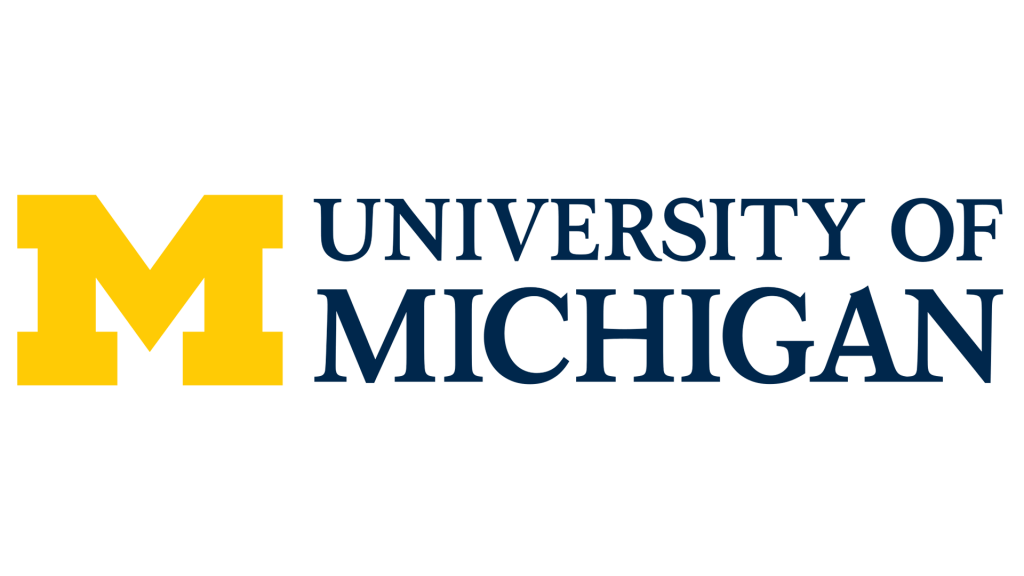
There are a number of MBA program options at the University of Michigan, Ann Arbor. However, for those students interested in pursuing sustainability management work, the Stephen M. Ross School of Business offers a Full-Time MBA program. This is a traditional, two-year on-campus program. This program offers a Business and Sustainability Concentration. This concentration offers electives that complement the MBA program with a focus on the “triple bottom line” of sustainability.
Students take 12 credits for their Business and Sustainability Concentration. Six of those credits come from foundational courses, and the remaining six come from general electives. It should be noted that of the 12 credits, three need to come from outside the Ross School of Business. Some of the foundational courses include
- Non-Market Strategy: Setting the Rules of the Game,
- Localization: Transitional Thinking for the New Normal,
- Environmental Law and Policy, and
- Systems Thinking for Sustainable Development & Enterprise.
Stacked Score: 93.44
University of California, Los Angeles – Los Angeles, California
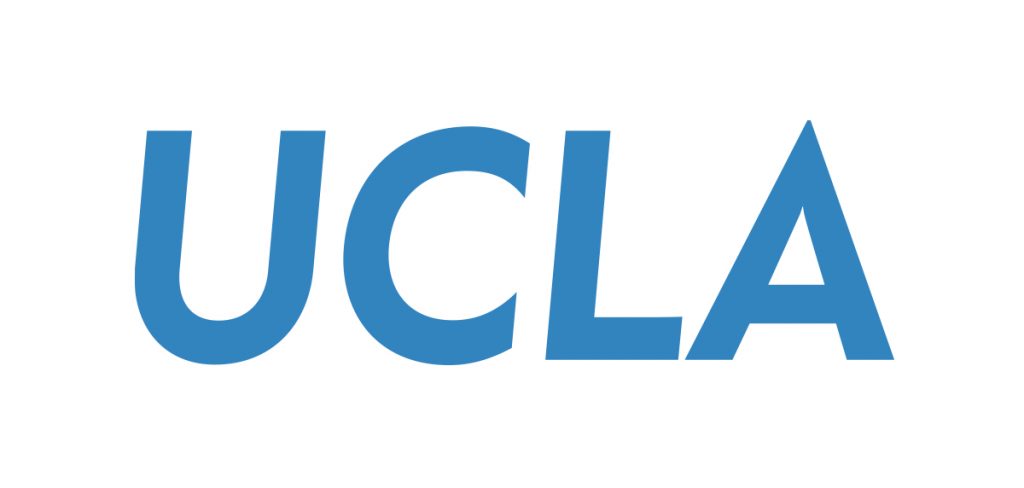
The University of California, Los Angeles Anderson School of Management offers a two-year Full-Time MBA program and a Fully-Employed MBA program. Both programs offer those interested in a career in sustainability management a Leaders in Sustainability Specialization and a Social Impact Specialization. These are taught through UCLA’s Institute for Environment & Sustainability and the Center for Impact@Anderson, respectively. Likewise, UCLA also offers an Executive MBA program. For those with a sustainability focus pursuing their EMBA, there is a Leaders in Sustainability Certificate and a Social Impact Specialization.
Both the FMBA (with night and weekend classes) and the EMBA (with weekend classes) allow students to continue working and offer a hybrid format for on-campus or online courses. The Full-Time MBA program is fully on campus. The FMBA is the longest program, requiring 27 months to earn your MBA, while the other two are 22-month programs.
Stacked Score: 93.14
Carnegie Mellon University – Pittsburgh, Pennsylvania

At the Tepper School of Business at Carnegie Mellon University, students have the choice between a 21-month Full-Time MBA program and several part-time programs. There is a Part-Time Online program and a Part-Time Flex, which are both 32-month programs. A faster Part-Time Accelerated is 24 months. These part-time programs are offered in a variety of formats, from fully online to hybrid options.
Regardless of which program you enroll in, a concentration is required to earn your MBA degree, although most students complete three or even four concentrations. Concentrations are automatic as soon as a student completes at least three electives in a particular subject area. Sustainability is one of the concentration options available. Some of the courses offered in this concentration include
- Electricity Market Restructuring,
- Sustainable Operations,
- Government and Business, and
- Catastrophic Risk Analysis.
This concentration was offered as part of the Tepper School Sustainability Initiative, which seeks to give students opportunities to pursue coursework, other academic initiatives, and career options in the sustainability field.
Stacked Score: 90.77
New York University – New York, New York

The Leonard N. Stern School of Business at New York University has a number of MBA programs and dual degree programs for students to choose from. Sustainability is a topic of specialization for a number of these MBA programs. The Full-Time MBA is a two-year on-campus program, while the Part-Time MBA comes in a variety of formats to make it work for students, regardless if they need weeknight or weekend classes, online or in-person.
Students may choose to pursue a Social Enterprise Area of Interest. Within this area, there is a Sustainable Business and Innovation Specialization. Specializations are made up of nine credits (which are typically three courses). The required course in this specialization is Sustainability for Competitive Advantage. Students may then choose from a wide variety of sustainability-focused courses for the remaining six credits, including
- Accounting for Sustainability,
- Social Entrepreneurship & Sustainable Development,
- Investing in Environmental and Social Impact, and
- Disruption, Entrepreneurship & Social Impact.
Stacked Score: 89.78
University of North Carolina at Chapel Hill – Chapel Hill, North Carolina
MBA in sustainability management
The University of North Carolina at Chapel Hill offers several MBA programs through the Kenan-Flagler Business School. The Full-Time MBA, however, is the option that students who want to build their sustainability management stack will want to pursue. This STEM-designated program takes 21 months to complete, with in-person daytime classes Monday through Thursday.
There are a variety of Career Concentrations offered in the Full-Time MBA program. The Sustainable Enterprise Concentration includes courses like
- Corporate Communication: Social Advocacy and Activism,
- Sustainability Reporting and Certification, and
- Renewable Energy: Project Development and Finance.
Students also have the opportunity to participate in experiential learning and resources like
- the annual ClimateCap: The Global MBA Summit of Climate, Capital and Business,
- Launching Investment for Future Transformation,
- Net Impact Club, and
- the Sacia L. Wood Social Impact Summer Grants.
Stacked Score: 88.40
Duke University – Durham, North Carolina

The Fuqua School of Business at Duke University has both a Daytime MBA and an Accelerated Daytime MBA program. The Accelerated MBA is a speedy 10 months, while the Daytime MBA is a more typical 22-month program. Both programs are full-time, in-person programs and offer an Energy & Environment Concentration and a Social Entrepreneurship Concentration.
The Energy & Environment Concentration is aimed at those who wish to work or consult in the emergency sector in any number of arenas, from oil to renewables to utilities. The Social Entrepreneurship Concentration is ideal for students interested in careers in philanthropy, entrepreneurship, or serving in executive roles or on boards of social-purpose organizations. There is also an Energy Finance Concentration for both programs, where students take deep dives into the fundamentals of the global energy market.
Fuqua also offers a Weekend Executive MBA program and a Global Executive MBA program. Both of these programs, likewise, offer the Energy & Environment and the Social Entrepreneurship Concentrations. These are hybrid programs for working professionals and are 22 and 21 months long, respectively.
Stacked Score: 94.55
Vanderbilt University – Nashville, Tennessee

At Vanderbilt University, students in the Owens Graduate School of Management may enroll in an Executive MBA or the Full-Time MBA program, which is an on-campus, two-year program. The Full-Time MBA offers a number of different concentrations, specializations, and emphases, inducing a Sustainability & Social Impact Emphasis. Emphases are made up of eight hours of deep-dive coursework in a particular industry.
For the Sustainability & Social Impact Emphasis, Corporate Strategies for Environmental, Social, and Governmental Issues is the required course. The rest of the coursework can be covered through classes like
- Financial Analysis of ESG Data,
- Strategic Business Solutions to Address Structural Racism,
- The Future of Energy Markets in a Low Carbon Economy, and
- Law & Business of Climate Change.
Through the Sustainability & Social Impact Emphasis, students are able to merge their business management studies with more specialized work on complex topics of sustainability.
Stacked Score: 86.64
Georgia Institute of Technology – Atlanta, Georgia
MBA in sustainability management
The Full-Time MBA and the Evening MBA programs at the Georgia Institute of Technology both offer students the option of a concentration in Sustainability. These MBA programs, which are through the Scheller College of Business, both require that MBA students choose an official concentration and four elective courses. With the Sustainability Concentration, students will develop a deeper understanding of both business trends and innovations around
- environmental concerns,
- emerging tech,
- policy,
- resource scarcity, and
- societal needs.
The Full-Time MBA is a two-year, on-campus program. Meanwhile, the Evening MBA is a part-time on-campus program that students can complete in 24 to 36 months.
Scheller also offers an Executive MBA program. While this program does not have a Sustainability Concentration, Business Strategies for Sustainability is one of the Core Courses in the program. The EMBA is a 17-month weekend program.
Stacked Score: 86.58
Boston University – Boston, Massachusetts

At the Questrom School of Business, Boston University MBA students have a number of ways to build their sustainability management stack. The Full-Time MBA program offers students the opportunity to specialize with a deep dive into either the health sector or social impact. A Social Impact MBA at Questrom aligns closely with the United Nations Sustainable Development Goals, with a focus on developing smart leaders in both the for-profit and nonprofit sectors.
As part of the Experiential Learning component of the Social Impact Specialization, students participate in a Behavior Change Practicum. They can also engage with Susilo Institute, which is a platform for ethical business and leadership, and the BU Institute for Sustainable Energy, which is a center dedicated to creating energy systems to provide abundant, accessible, and sustainable energy for both emerging and advanced economies.
Additionally, students in the Full-Time MBA may choose to follow one of the Career Pathways. For those with a sustainability lens, there is the option of Energy and Sustainability focus in the Finance Career Pathway. Students will focus on the development of “cleantech” and other new technologies, as well as business models, products, and services that work towards the advancement of environmental sustainability.
Stacked Score: 84.08
University of Virginia – Charlottesville, Virginia

MBA in sustainability management
At the University of Virginia, the Darden School of Business offers a Full-Time MBA program, which is a two-year, on-campus program. Students enrolled in the Full-Time MBA may earn as many concentrations as they would like. Among the available choices, they can select Innovation for Sustainability, which is part of the Theme Track Concentrations. Students will study the global impacts on natural systems from energy consumption, the influence of institutions and policy on business operations, innovative processes and tools in the sustainability realm, and how innovation in sustainability can help to increase revenues and lower costs for organizations.
In the Executive MBA program at the University of Virginia, Darden students select from one of seven focus areas, which includes the option of ESG and Social Impact. Students earn their specialization here by completing three electives in a particular area. The EMBA is a hybrid, synchronous program with weeknight classes online and weekend classes on campus.
Stacked Score: 81.90
Emory University – Atlanta, Georgia
MBA in sustainability management
Emory University MBA students at the Goizueta Business School who are interested in sustainability career paths have the option of both an accelerated one-year Full-Time MBA program and a two-year Full-Time MBA program. The Full-Time MBA offers over 20 concentrations, including Social Enterprise, regardless of which track. There is also a part-time Evening MBA program aimed at working professionals, which has the same 20 concentration offerings, including Social Enterprise. This program can be completed in as little as 24 months, though 32 is the average.
MBA students also participate in IMPACT, Goizueta’s experiential learning program. With IMPACT, students partner with organizations, both for-profit and nonprofit organizations, to work on real-life projects addressing a critical need for the organization. For those interested in building their sustainability management stack, IMPACT can be tailored to particular career goals.
Stacked Score: 86.98
Ohio State University – Columbus, Ohio
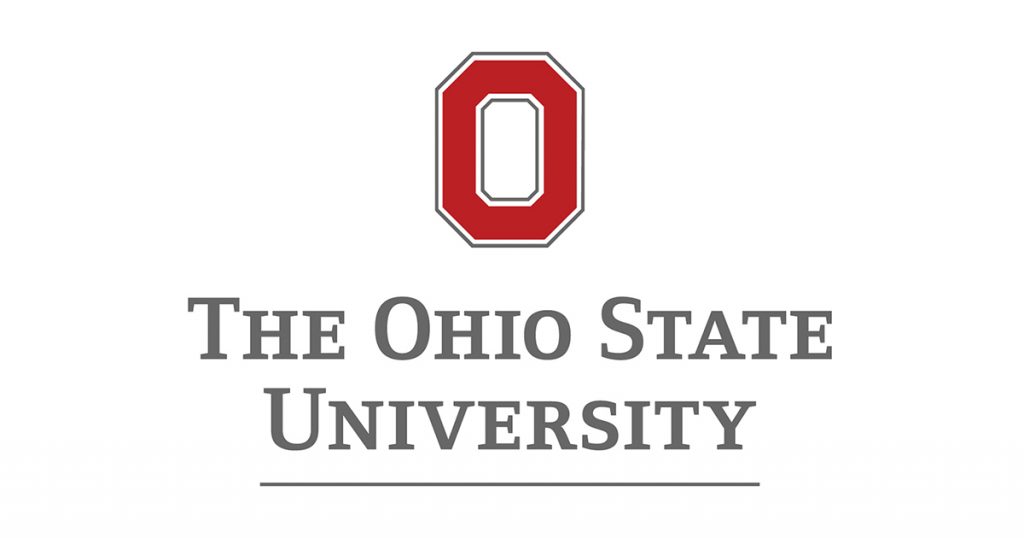
The Max M. Fisher College of Business at Ohio State University offers three MBA programs. However, for those interested in sustainability, the Full-Time MBA program is the one to look into. This program is an on-campus program wherein students can choose from any number of pathways, including Sustainability. It has a business and policy lens for those with an interest in environmental sustainability. This pathway requires
- Strategies for Business Sustainability;
- Sustainable Operations;
- Advanced Environment, Risk and Decision Making; and
- Frameworks and Theories of Environmental Policy for coursework.
There are other optional relevant courses like Sustainable Transportation and interventions to Promote Pro-environmental Behavior, which sustainability-focused students may choose to take as well.
As part of the Experiential Learning component of the Full-Time MBA, students may participate in the Social Impact Challenge. Through this challenge, students work with a local nonprofit to both identify problems and seek opportunities for improvement by assessing courses of action, developing a strategy, and implementing a plan.
Stacked Score: 79.21
Pennsylvania State University – University Park, Pennsylvania

MBA students at Pennsylvania State University’s Smeal College of Business have the opportunity to build their sustainability management stack in the Residential MBA program or the Online MBA program. The Residential MBA is a two-year, on-campus program, and students enroll in both concentrations and options. While there is not a sustainability concentration, sustainability is one of the options for the Residential MBA program. Most students complete two to three options, which are shorter, targeted periods of study on a particular topic.
In the Online MBA program, Business Sustainability Strategy is one of the concentrations offered. This is a 48-credit program with asynchronous courses, although students can choose to take synchronous courses if preferred. To earn their Business Sustainability Strategy Concentration, students take nine credits made up of three courses:
- Sustainability Strategy Development,
- Strategy Implementation and Organizational Change, and
- Sustainable Supply Chain Management.
Stacked Score: 76.22
Northeastern University – Boston, Massachusetts
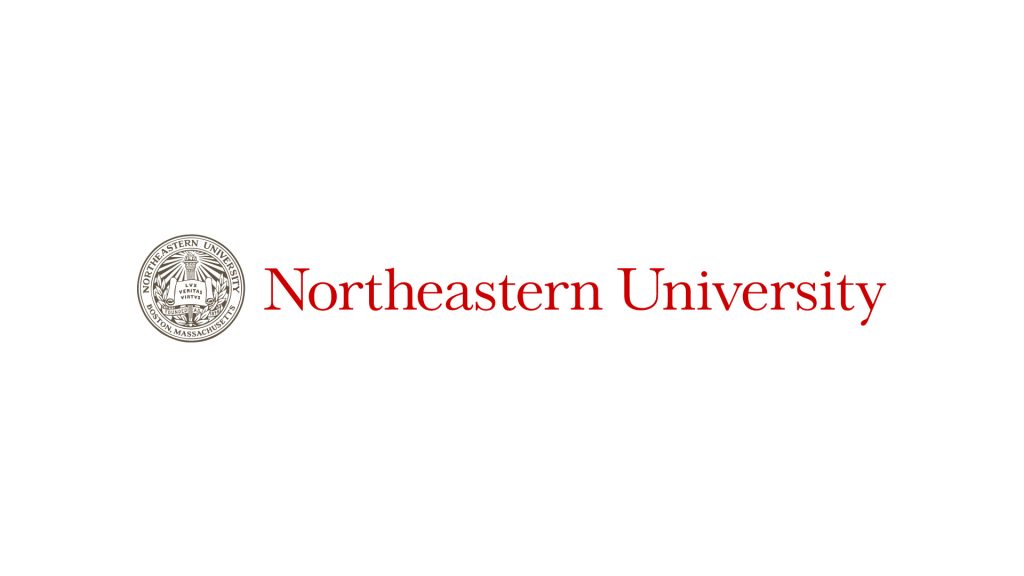
At Northeastern University, MBA students in the D’Amore-McKim School of Business have their choice between a Full-Time MBA program and the Part-Time MBA program for focused sustainability management study. Both are on-campus programs. The Full-Time MBA is a two-year program, and the Part-Time MBA is a three-year program, typically. This program offers classes in the evening, making it a good option for working professionals. Regardless of which program an MBA student chooses to enroll in, they must complete two concentrations to earn their MBA degree.
Sustainability and Business is one of the offered concentrations. For each concentration, there are one to three core classes, which are then supplemented with the student’s choice of relevant electives. Students need to complete a total of 12 semester hours for the Sustainability and Business Concentration. Some of the courses available include
- Social Enterprise,
- Creating Sustainable Competitive Advantage through Global Innovation,
- Sustainability and the Economics of Markets, and
- Sustainability and Supply Chain Management.
Stacked Score: 72.46
University of Georgia – Athens, Georgia

The University of Georgia’s Terry College of Business MBA students who are looking to build their sustainability stack has that option when they enroll in the Full-Time MBA program. This is a two-year program with on-campus classes. This is a 61-credit program, with one credit coming from completing 50 hours of community service. In addition to the required coursework, students may choose to earn a concentration or focus, which includes the choice of a Social Innovation Focus.
Students must complete Critical Design Thinking and one more required course from the options of
- a Service Learning Project as part of the Leadership Fellows Program,
- a B-Corp Project as part of the Innovation Business Projects course, or
- a Nonprofit Board Fellow Program.
In addition, they complete nine credits of electives from courses like
- Business, Government, and the International Economy;
- Leading Evolving Organizations;
- Energy Informatics; and
- Designing, Managing & Improving Supply Chains.
Stacked Score: 63.71
Villanova University – Villanova, Pennsylvania
MBA in sustainability management
Villanova University School of Business offers a Professional MBA program. This is a flexible MBA program that is designed with working professionals in mind. Students may choose to complete their coursework on Villanova’s campus, online, or a hybrid of the two, whatever works best for them. There is also a cohort format, which starts in the fall and can be completed in two years. Students in the PMBA program complete 48 credits to graduate. Of those 48 credits, 7.5 are elective credits that earn a specialization of which Sustainability is one of the choices.
The Sustainability Specialization uses a STEEP (Social, Technology, Economic, Environment, and Political) framework. Students study challenges and opportunities around climate change, eco-efficiency, public policy, and socioeconomic equity. Students also learn how to implement sustainable solutions on macro-levels and how to manage climate change challenges with policies and through a socioeconomic understanding.
Stacked Score: 61.46
Brigham Young University – Provo, Utah

The Marriott School of Business at Brigham Young University offers both an MBA program and an Executive MBA program. However, for those interested in sustainability, the MBA program is the program to choose from. BYU’s MBA program is a two-year program at BYU’s campus in Provo, Utah. The majority of the second year is made up of coursework related to students’ chosen tracks and emphases, which includes the Social Innovation Emphasis. This emphasis is for those with a commitment to working on social issues in any capacity, from a career to an advisory role on a board.
Classes in this emphasis focus on innovative and entrepreneurial solutions to social challenges. Social Innovation & Social Entrepreneurship is the one required course. Students then pick between Nonprofit Organization Management or Nonprofit Structure and Tax and three credits of electives from courses such as Nonprofit Board Practicum and International Development Policy.
Stacked Score: 60.53
Fordham University – Bronx, New York

In the Bronx, the Gabelli School of Business at Fordham University offers a Global Sustainability Secondary Concentration for students enrolled in the Full-Time MBA program. This STEM-designated MBA program is a 60-credit, two-year program. In the summer between Year One and Year Two, students complete an internship.
For the Global Sustainability Secondary Concentration, students earn nine credits from three upper-level graduate classes that Fordham considers Global Sustainability courses. Some of the possible course selections for this concentration include
- Conservation Biology,
- Cross-Cultural Negotiation and Communications,
- Agriculture and Development,
- Climate Change Law and Policy, and
- IT and Sustainability, among a wide variety of other options.
Students may complete courses outside of Gabelli to fulfill the concentration requirements with courses that are most relevant to building their sustainability stack. Students may also choose to pair their secondary concentration with a five-course primary concentration in
- Accounting,
- Communication and Media Management,
- FinTech,
- Finance,
- Information Systems,
- Management,
- Marketing, or
- Public Accountancy.
Stacked Score: 55.27
University of Denver – Denver, Colorado

The University of Denver Daniels College of Business offers a number of concentration options, including a Sustainability Concentration, as part of the Denver MBA program. This is a full-time MBA program that students can complete in 21 months. Within the program, students create a start-up, incubate a social good project, and work on solving challenges for international and domestic organizations based on a “challenge-driven” educational structure, referred to as
- the Entrepreneurship Challenge,
- the Social Good Challenge,
- the Corporate Challenge, and
- the Global Challenge.
As part of the Global Challenge, which happens in Year Two, students complete an international trip.
The Sustainability Concentration at Daniels helps students learn how to integrate sustainability practices in operations while creating strong reporting structures for accountability and cultures around sustainability improvement. Of the six required electives for the Denver MBA program, four of them go towards fulfilling your concentration.
Stacked Score: 55.12
Brandeis University – Waltham, Massachusetts

The Heller School for Social Policy and Management at Brandeis University offers a Social Impact MBA program. This is a quick 16-month program where students have the option to choose Sustainable Development as a concentration. In addition to the required 52 credits for the Social Impact MBA, students also complete eight courses for their Sustainable Development Concentration. Some of the course options available include
- Comparative Approaches to Global Injustice & Social Inequality,
- Climate Change and Livelihoods,
- Ethics, Rights and Development, and
- Applied Cost-Benefit Analysis.
With the guidance of an academic advisor, students also must take four more courses in Sustainable International Development. Finally, there is also a required Team Consulting Project. In this four-month-long project, students work in teams of three to five under the supervision of a faculty advisor. These teams provide consulting services to a mission-driven organization, which might be from the nonprofit, for-profit, or public sector.
Stacked Score: 66.08
Stevens Institute of Technology – Hoboken, New Jersey
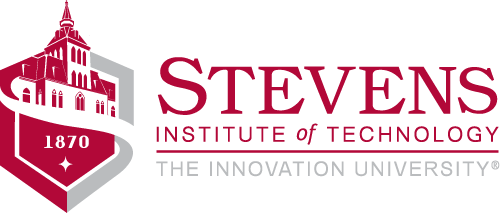
Hoboken, New Jersey’s Stevens Institute of Technology offers a Sustainability Management Concentration as part of their MBA program through the School of Business. The Stevens MBA takes a combination of tech-centric management classes along with four courses that make up a concentration and is focused on a student’s particular career interests. This is a two-year program that is made up of 39 credits. Students may choose to enroll either full-time or part-time, depending on their needs. It is also offered both online and on-campus for further flexibility.
The four courses that make up the Sustainability Management Concentration for the Stevens MBA are
- Perspectives in Environmental Management,
- Sustainable Business Strategies,
- Environmental Law and Management, and
- Sustainable Development.
Stacked Score: 54.03
University of South Florida – Tampa, Florida

At the Muma College of Business at the University of South Florida, MBA students interested in building their sustainability management stack can enroll in the Professional MBA program. This program offers flexibility through the Evening Program format and its Weekend Program format. The Evening program meets weekly at the USF Tampa campus. The Weekend Program takes a hybrid approach with classes at the USF Sarasota-Manatee campus one Saturday each month and then continues their coursework through asynchronous learning the rest of the time. Regardless, the Professional MBA can be completed in as little as 12 months, although most students take two to three years to earn their degree.
Students have the option to work with an academic advisor to choose a series of electives that will help them develop expertise in a particular emphasis area, including Sustainable Business. Students also get to participate in
- case competitions,
- experiential learning,
- mentorship,
- coaching opportunities, and
- study abroad experiences.
Stacked Score: 51.05
University of Oregon – Eugene, Oregon
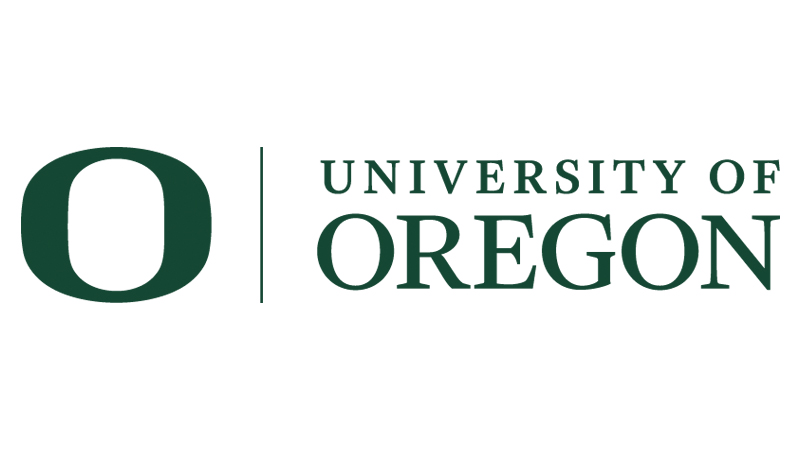
The University of Oregon offers Sustainable Business Practices as one of the specializations for the MBA programs. Run through the Charles H. Lundquist College of Business. Students may enroll in the Full-Time MBA, the Accelerated MBA, or the Flex MBA. The Full-Time is a two-year program with on-campus courses, while the Accelerated MBA is a one-year version. The Flex MBA is for working professionals in the Eugene, Oregon area who are willing to earn their degree part-time over two to four years.
There are nine required courses for Sustainable Business Practices Specialization. However, those enrolled in the Accelerated MBA or the Flex MBA take only one of the nine required courses. These courses include
- Sustainable Business Development,
- Industrial Ecology,
- the Strategic Planning Project, and
- Supply Chain Operations and Information.
Stacked Score: 50.80
There are many ways to build your sustainability management stack beyond or concurrent with earning your MBA in Sustainability Management.
Three Pillars
If you aren’t already, familiarize yourself with the three pillars of sustainability. These three pillars, also known as the triple bottom line, are
- economical,
- environmental, and
- social.
They are based on the United Nations’ 17 sustainable goals. While most of us are familiar with the environmental pillar, the other two are equally important. The social pillar deals with the initiatives, politics, and regulations that support social issues. You’ll find this pillar being addressed in areas of
- social justice;
- Diversity, Equity, and Inclusion work;
- access to healthcare and education; and
- community development, as examples.
The economic pillar does look at whether an organization is viable, but profitability isn’t everything. A sustainable organization should also encourage healthy, balanced work culture that takes the environmental and social pillars into consideration alongside the economic pillar. You can read more about the three pillars from a corporate lens to deepen your understanding of the role of sustainability from a business perspective.
Find Your Niche & Upskill
The sustainability field is so broad that it can cover any field you are interested in. So while there is an abundance of opportunity, it can also be challenging to figure out what your focus is in such a vast sea. Whatever your background is, there’s probably something that you can apply a sustainability lens to, be it IT or finance, supply chains, or the law.
Browse ESG jobs on various platforms to get a sense of what is out there for your particular area of interest. ESG stands for Environment, Social, and Governance and refers back to those three pillars of sustainability.
Once you’ve found your sustainability niche (or if you already know what it is), upskill! There are several areas that are highly sought after when it comes to sustainability and can be paid with your business background to provide even more valuable skill sets. Consider areas like monitoring, operational management, and technology. Science-based skills are all areas in high demand in the sustainability field.
Qualities of a Good Manager in the Field of Sustainability
- Good organizational skills: Being able to effectively and efficiently organize resources and manage projects, prioritize tasks, and delegate responsibility is essential for any manager.
- Global knowledge: It is important to have a good understanding of global sustainability challenges and initiatives.
- Leadership skills: Being able to lead a team, inspire others and create a culture of sustainability are critical elements of successful sustainability management.
- Innovation: A good manager in the field of sustainability will have the creative thinking skills to develop and implement fresh ideas.
- Communication skills: Being able to effectively communicate with colleagues, employees, and stakeholders helps ensure that everyone is on the same page and working towards common, sustainable goals.
Join a Network
Build your network as you build your sustainability management stack. There are a number of professional sustainability organizations out there that can help connect you with the right people for your career goals in the field.
- The Young Sustainability Network is aimed at young professionals.
- Women in Sustainability is for, well, women in sustainability.
- And the International Society for Sustainability Professionals (ISSP) is a global network in the field.
By joining a network, you gain access to not only connections to others who are passionate and engaged in the same type of work you are, but you also can take advantage of the resources and educational offerings these organizations have to build your sustainability stack further.
We hope you found this list of 25 MBA in Sustainability Management programs helpful as you determine the best MBA program to build your sustainability management stack and further your career goals.
To Wrap Things Up
- A sustainability MBA will allow for various careers, such as operations management, sustainability management, corporate finance, sustainable investing, strategic sustainability, socially responsible investing, environmental consulting, project management, environmental engineering, environmental protection, and many others.
- Business schools that offer business administration programs often also provide a specialization in sustainability management for those interested in this important field.
- Online MBA in sustainability programs are readily available, providing flexibility and convenience for working students.
- Sustainability MBA graduates focus on sustainability challenges, sustainable systems, business strategy, sustainable enterprises, environmental stewardship, socially responsible investing, environmental compliance, and, specifically, sustainability leadership and strategic management.
Before you go, see the following:
- Intro to Sustainability Management: Free Online Course
- The Cheapest Online MBA in Sustainability Management Schools
- Top MBA in Sustainability Management Career Paths
________________________________________________
Researched and Written by: Tammie Cagle
________________________________________________